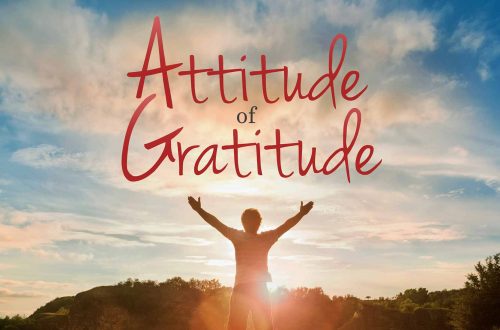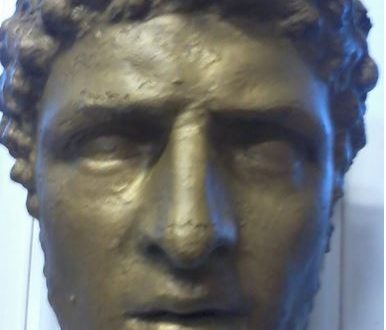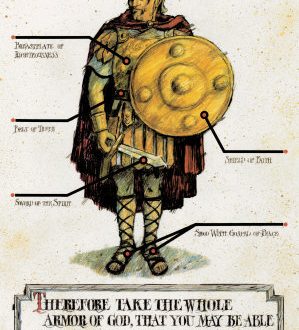The Beginning And Ending Of Poverty
The closing thought of Genesis chapter two is this: “The man and his wife were both naked, but they were not ashamed.” These words remind us that the Garden of Eden was a place of beauty, a place free from poverty and a place completely unmarred by sin and it’s polluting, crippling and heartbreaking effects. The Garden was the birthplace of intimacy with God, self, creation and marital harmony. Adam and Eve’s world was a paradise.
There’s an undisclosed amount of time that elapsed between Genesis chapters two and three, when the serene habitat turned ugly; when poverty began.
The closing thought of Genesis chapter two is this: “The man and his wife were both naked, but they were not ashamed.” These words remind us that the Garden of Eden was a place of beauty, a place free from poverty and a place completely unmarred by sin and it’s polluting, crippling and heartbreaking effects. The Garden was the birthplace of intimacy with God, self, creation and marital harmony. Adam and Eve’s world was a paradise.
There’s an undisclosed amount of time that elapsed between Genesis chapters two and three, when the serene habitat turned ugly; when poverty began.
Adam and Eve’s sin caused incredible pain, damage and sadness. Four relationships were corrupted that day as a result of a single sin. The first corrupted relationship was the relationship Adam had with God. Now afraid, Adam hid from God among the trees of the Garden when God came looking for him. Second was Adam’s relationship with himself, as he no longer saw himself as God saw him. Adam now saw himself as “naked” – a realization the Bible suggests God never intended. Third was Adam’s relationship with Eve. Adam blamed Eve for the debacle in the Garden, and thereby damaged his relationship with her. Fourthly, Adam damaged his relationship with the rest of creation. God cursed the ground as a result of Adam’s one (and our subsequent) sin and forever the landscape of the planet was altered.
When you hear or read the word “poverty”, what comes to mind? For most people, the tendency is to think of poverty in the context of a lack of resources. However, that’s just one facet of poverty. Every one of the relationships corrupted in the Garden creates it’s own aspect of poverty. The corrupted relationship with God creates a spiritual poverty. The corrupted relationship with self creates a poverty of being; not seeing yourself as God sees you. The corrupted relationship with Eve creates a poverty of community. And, the corrupted relationship with creation provides a poverty of stewardship.
Poverty, simply defined is this: a deficiency of necessary or desirable ingredients or qualities.
What did Christ accomplish when He died on the cross? Certainly His death heals and restores our relationship with God or alleviates our spiritual poverty. But, Christ’s healing doesn’t stop there. His death brings restoration to all of the relationships corrupted in the Garden and helps us live in right relationship with God, with self, with others and with the rest of creation. Oh, the power of the cross!
We are all poor – just in different ways. My poverty isn’t a spiritual poverty. I’ve asked Christ to forgive my sins, submitted to His Lordship over my life and trust Him for my salvation. No one would ever look at my life and think I suffer from a poverty of stewardship. But, I am poor. I suffer from a poverty of being. I don’t see myself as God sees me. Sometimes my poverty of being affects the relationships around me and contributes to my poverty of community. Again, we are all poor – just in different ways.
Because of my poverty of being, I work too much. I care too much about what people think and say about me. Most, if not all, of my dysfunction finds its root in this poverty of self; poverty Christ died to heal. As simple as it sounds, I just need to live in the confidence of knowing Christ’s death brings healing to all areas of my life; His death heals all of my poverty.
When Jesus cried, “It is finished,” from the cross as He was dying, He knew He had set in motion God’s intent for the restoration of mankind and creation. Christ took our death to give us His life and took the consequences of our unrighteousness to give us His righteousness. The finished work of Jesus Christ is inclusive of redemption, regeneration and heals all the facets of poverty.
My daily Bible blog can be read at www.thefodder.net


